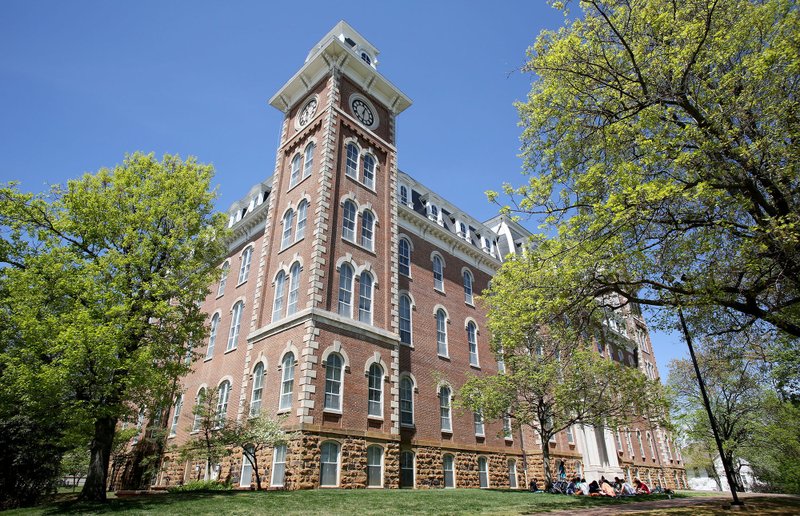FAYETTEVILLE -- The number of mumps cases tied to the University of Arkansas, Fayetteville has climbed to 26 since September, a state Department of Health spokeswoman said Thursday.
On Nov. 25, UA announced nine confirmed cases of mumps on campus.
The latest total includes 20 cases identified in November, said the Health Department's Danyelle McNeill. There also were three in September and three in October, she said.
All but one of the 26 people sickened by the viral illness have been confirmed as having been inoculated for the mumps, McNeill said.
"According to Dr. Joel Tumlison, physician specialist in our outbreak response section, 25 of the 26 mumps cases have been verified as having been fully vaccinated. We don't have records on the 26th yet," McNeill said in an email.
Elsewhere, the state "apparently had a few cases" of mumps since September, McNeill said, but no totals for those cases were available Thursday.
Once contracted, there is no treatment for the mumps, which can be spread through direct contact with saliva or respiratory droplets from coughing or sneezing.
The illness can produce serious complications, but most people recover completely, according to the Centers for Disease Control and Prevention. Common symptoms include fever, headache and swollen glands under the ears or jaw. McNeill said none of the 26 people infected has required hospitalization.
The state had an outbreak of mumps in 2016 and 2017, with nearly 3,000 cases, according to the state Health Department.
The confirmed cases last month led to new requirements for UA students and a push to have more students vaccinated.
Students who hadn't received the recommended two doses of the measles, mumps and rubella, or MMR, vaccine were required to be vaccinated immediately or be excluded from classes for at least 26 days, according to a public health directive dated Nov. 22 from the state Department of Health.
Zac Brown, a UA spokesman, explained that the 26-day period is the time within which a person may become sick after being infected.
Last month, Brown said more than 99% of UA students had the two MMR vaccinations.
Under state law, schools require vaccinations for students, but the law also allows for exemptions for medical, religious or philosophical reasons.
In June, UA revised a campus policy to state that all incoming students, including transfer students, must have two MMR vaccinations unless they have medical exemptions or exemptions as allowed by state law. The change made clear that the policy applies to all incoming students, including graduate students and international students, not just incoming freshmen, Brown said last month.
Brown on Thursday said the push to get students vaccinated has largely been successful. Out of 407 students originally excluded from classes, there remained 168 who hadn't received the two doses of MMR vaccine as of Thursday, Brown said.
"We sent out a reminder to those folks today, so that number will hopefully keep going down over the next couple of days," Brown said in an email Thursday. UA's fall semester ends with final exams Dec. 16-19.
Brown said it's important to note that some of the cases involve students who have since recovered. Last month, as the mumps cases emerged, the university's athletic department took steps to make the MMR vaccine available to all coaches, players and staff members.
"Not sure how many of the student-athletes are still infectious/isolating since they have their own medical team, but I know the health center is aware of two students still considered infectious," Brown said in an email.
Regardless of any exemptions, the public-health directive applies to all students who haven't received the two MMR vaccine doses.
"Even if they have an exemption, they still are supposed to be excluded from class and activities, since they are much more susceptible to getting the infection. For any student, whether simply undervaccinated or with an exemption, if they change their mind and get the vaccine, they can then return to class/activities," Tumlison said in a statement.
Mark Rushing, a UA spokesman, said faculty members have been asked to work with students who may be excluded from class to find ways to lessen the effects of their absences on their academics.
"It's really up to each instructor to consider the best options for each situation, including things like the online proctoring of exams," Rushing said in an email. "Our instructors are doing a great job of finding ways to accommodate these students and make the best of this situation."
Metro on 12/06/2019
